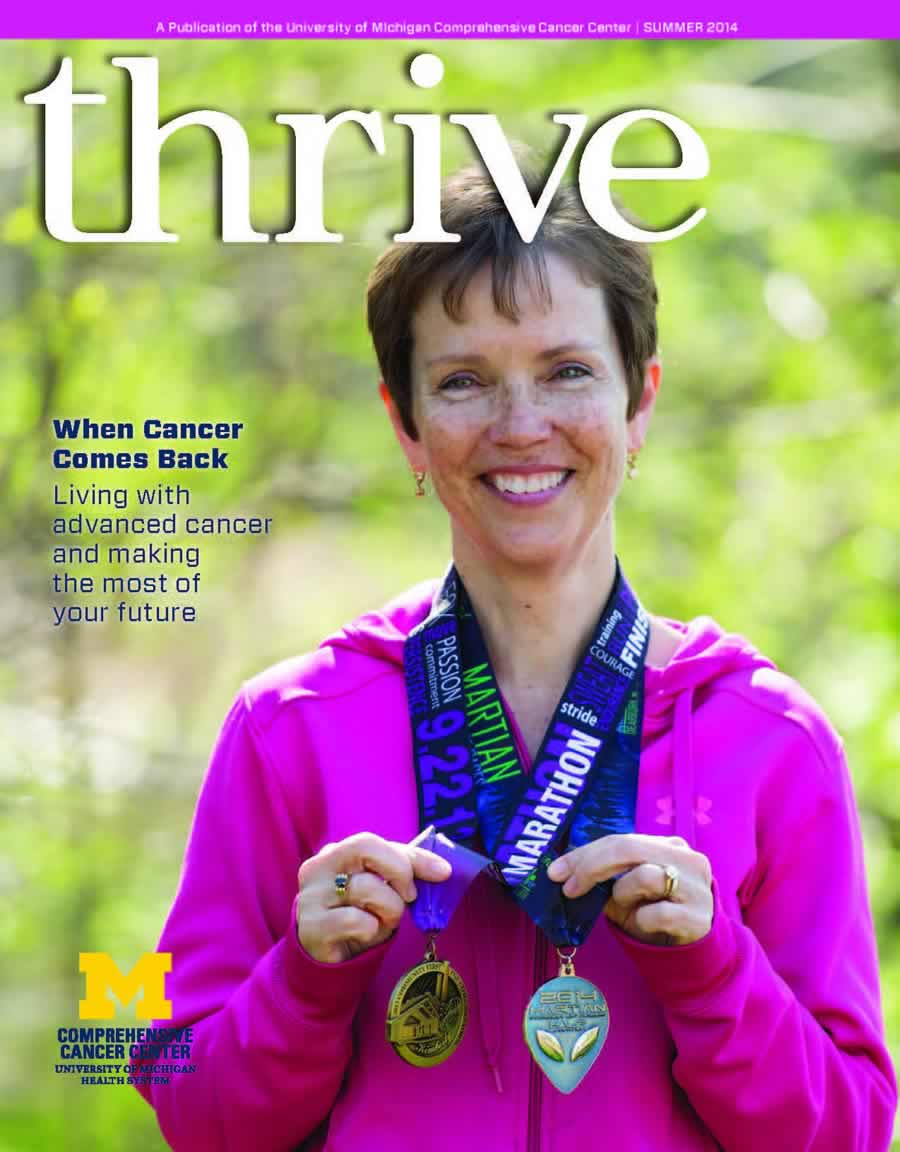Summer, 2014

This summer marks another phase of MiChart, the electronic health record system being implemented throughout the Rogel Cancer Center and Michigan Medicine. Using technology to keep track of medical records is required by the United States government and is something that all health care providers, big and small, are working toward.
No matter your diagnosis or treatment status, every person who has been diagnosed with cancer has a common concern: what if my cancer comes back? It's a large and complicated topic, due to the wide variety of ways cancer works in the body, as well as the unpredictability of the disease.
Jennifer Kelley was unprepared for the rare diagnosis of leiomyosarcoma at age 52, especially since it was her third experience with cancer in a mere 30 months. She had the cancerous lump under her arm surgically removed and followed up with five cycles of chemotherapy as a precaution. Because Kelley's cancer had spread into a lymph node, he explained the cancer was categorized as
stage 4 and expected to return.
If you ask Carolyn C. about her 2005 cancer diagnosis or her recurrences since that time, there's a good chance she'll bring up the "hit by the bus theory." "Nobody is promised tomorrow," says the 51-year-old wife and mother of three sons. "People with cancer happen to be reminded of that more strongly. We can't let our fear of the bus get in the way."
Gretchen Elsner-Sommer enjoys welcoming people, whether it is into her home in Ann Arbor, her former bed and breakfast in Illinois or the University of Michigan Rogel Cancer Center. At 66, this breast cancer survivor volunteers at the center every week hoping to make at least one cancer patient's day a little brighter.
Eating can be a major issue when you have cancer. Sometimes food doesn't taste good. Sometimes you’re simply not hungry. And, sometimes food makes you feel even sicker than before you ate. Registered dietitians at the U-M Rogel Cancer Center delivered a unique presentation to cancer care providers recently. In addition to offering valuable information on the importance of nutrition during cancer care, our dietitians let them taste for themselves the many different varieties of liquid nutritional supplements available to patients who don't feel much like eating.
Along with the rest of the University of Michigan, the infusion pharmacy at the Rogel Cancer Center has been using new technology to improve patient care
Last summer, we wrote about Sarah Tupica Berard, who joined the Rogel Cancer Center's Patient and Family Advisory Committee after her father was treated for a rare cancer in his jaw. She wanted to give back and help other patients and family members have a better care experience.
